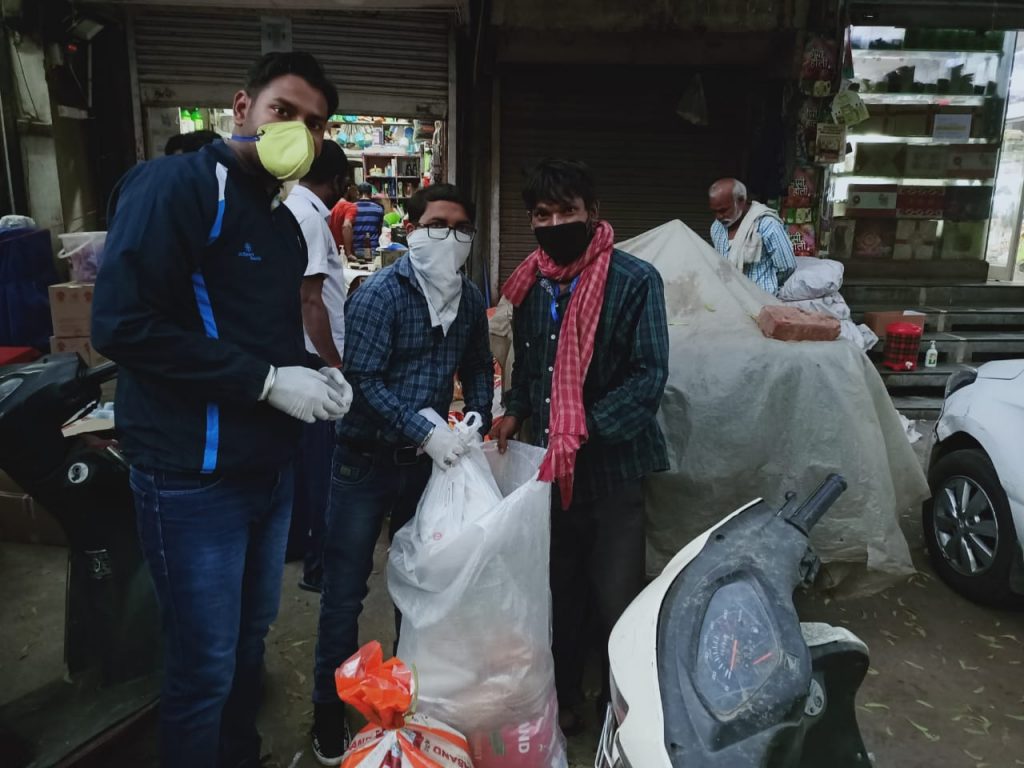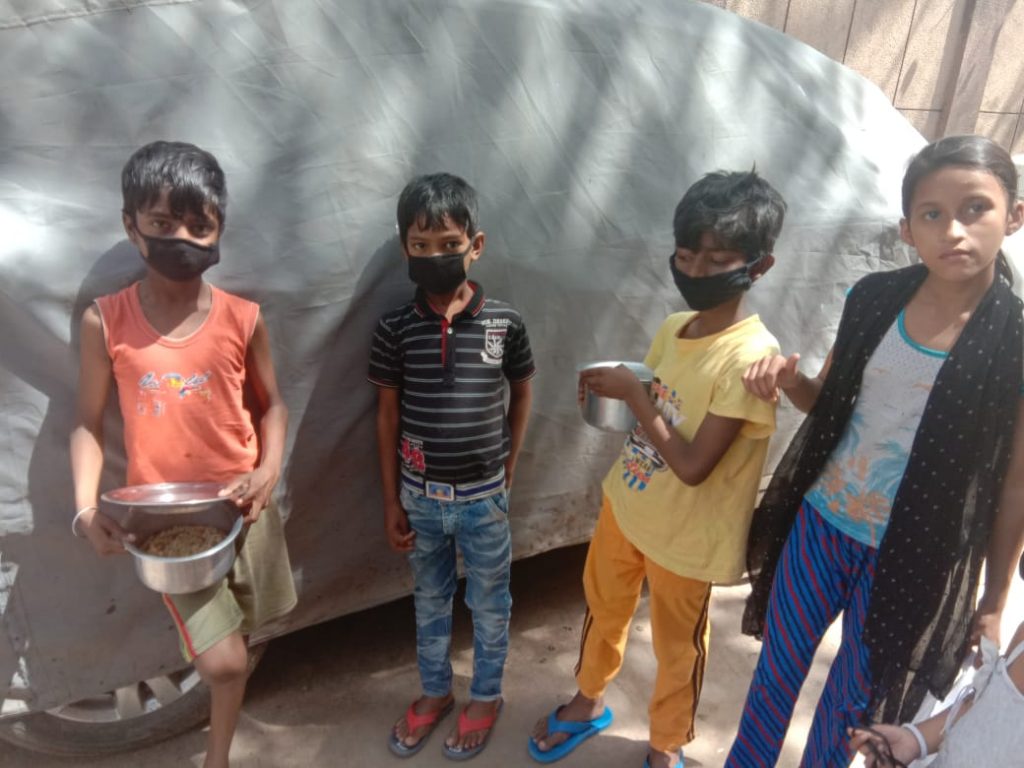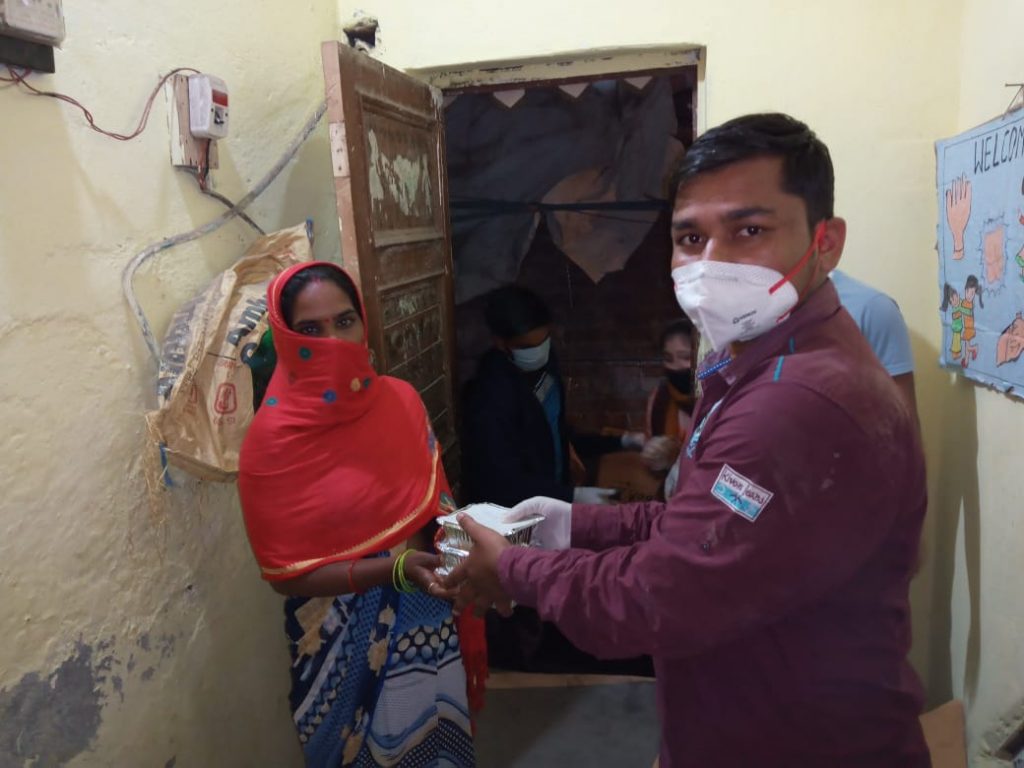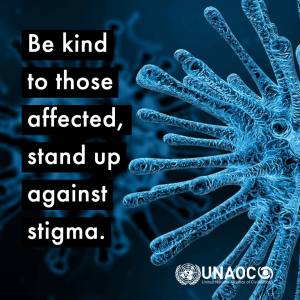
“I went to my sister’s place,” Rama said. “She told me, ‘I have two kilos of rice left. Let’s just divide it up.’” That’s what they did. Divided up the rice, cooked it with salt and made it last for two days. When I called her up, she was brewing tea leaves for breakfast. “What to do? There’s nothing left,” she sighed.
Rama picks trash on one of Delhi’s largest landfills. In her gali (slum-alley), the kids are all being fed tea for lunch and dinner. “Lal chai-what to do?” Rama’s neighbor, Shanti, told us. What she means is boiled tea without milk and sugar. One of the problems with this, they explained over the course of our various phone conversations, is that the tea runs out of color and flavor when you keep on boiling the same tea leaves. Truth be revealed, the children of Bhalswa landfill are drinking boiled water for meals.

These are the same children who excel in science and math – the focus of Chintan’s No Child in Trash Programme here. Two years ago, a child invented a cooler for the summer, made entirely from the trash from the landfill nearby, so his mother wouldn’t sweat so much while cooking his lunch. Today, she can’t sweat, because there’s nothing to cook.
Meanwhile, there’s a curfew. The police are not letting anyone out of their homes. It’s the most desolate you’ll ever see this city of more than 25 million. Zoom is the new Chintan office, where dozens of people are collecting donations to create ration kits. A kit will have enough rice, wheat, oil and a few spices for a family of six, with nothing to spare. There’s soap too, and masks. School students, interns, retired folks, former colleagues – they’re all transferring donations. While one teams tracks this, another is getting permissions to step out to distribute the kits. Two colleagues are convincing stores to let them buy in bulk, assuring them they are no hoarders or profiteers.
Waste pickers won’t get to sell the recyclables they collect, leaving them without significant incomes. Those who work at landfills, or operate in dumpsters and other informal spaces, are entirely jobless. They have nothing, not even the money for food. Most Indian waste pickers experience COVID19 like this.

Most waste pickers also experience COVID19 like this: marginalized. They often live in slums. “Here we are, serving all these people all these years, keeping their localities spotless,” says Rokhan, a waste picker in New Delhi. “Don’t you think we are right in asking for their help now? We also have to keep our children safe.” He’s been asking people whose waste he collects, to help. Some give him food every day, others some money. Some have told him it’s also hard for them. “I know everyone won’t help us, but I know some people are decent. And some understand that if we don’t show up tomorrow, the disease may become worse for everyone,” Rokhan points out. “I’m seeing who is what kind of person – it’s clear now.”
About: Chintan works towards environmental and social justice with people and groups from diverse sections of society. It aims to create green jobs, security and dignity for the urban poor, many of whom earn a living as waste pickers. It does not only create opportunities for them but encourages their integration, creating communities that support understanding between diverse cultural groups.
Organization: Chintan
Country: India
UNAOC Programme: Intercultural Innovation Award
Year: 2013
Website: http://www.chintan-india.org/
Facebook: https://fb.me/ChintanIndia.org
Twitter: https://twitter.com/ChintanIndia
Instagram: https://www.instagram.com/chintan.india

